Filter by
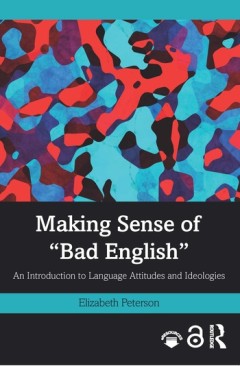
Making sense of "bad English" : an introduction to language attitudes and ide…
Why is it that some ways of using English are considered "good" and others are considered "bad"? Why are certain forms of language termed elegant, eloquent or refined, whereas others are deemed uneducated, coarse, or inappropriate? Making Sense of "Bad English" is an accessible introduction to attitudes and ideologies towards the use of English in different settings around the world. Outlining …
- Edition
- -
- ISBN/ISSN
- 9781138237469
- Collation
- xxiv, 166p. : ill.
- Series Title
- -
- Call Number
- 427 PET m
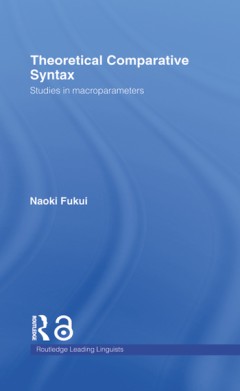
Theoretical comparative syntax : studies in macroparameters
Collected for the first time in a single volume, these essays and articles by Naoki Fukui form an outline of some of the most significant and formative contributions to syntactic theory. Focusing particularly on the typological differences between Eng/type language and Japanese/type languages, Fukui examines the abstract parameters that both link and divide them. Linguistic universals are consi…
- Edition
- -
- ISBN/ISSN
- 9780203479179
- Collation
- ix, 422p. : ill.
- Series Title
- -
- Call Number
- 415 FUK t
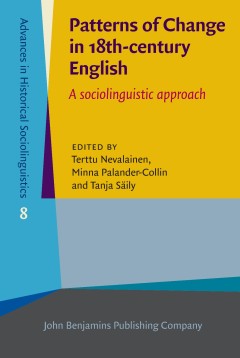
Patterns of change in 18th-century English : a sociolinguistic approach
Eighteenth-century English is often associated with normative grammar. But to what extent did prescriptivism impact ongoing processes of linguistic change? The authors of this volume examine a variety of linguistic changes in a corpus of personal correspondence, including the auxiliary do, verbal -sand the progressive aspect, and they conclude that direct normative influence on them must have b…
- Edition
- -
- ISBN/ISSN
- 9789027263834
- Collation
- xi. 311p. : ill.
- Series Title
- -
- Call Number
- 427.009033 PAT p
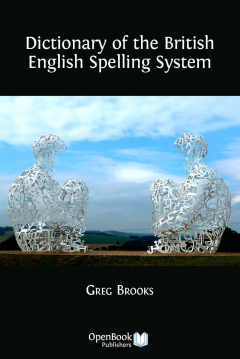
Dictionary of the British English Spelling System
This book will tell all you need to know about British English spelling. It's a referente work intended for anyone interested in the English language, especially those who teach it, whatever the age or mother tongue of their students. It will be particularly useful to those wishing to produce well-designed materials for teaching initial literacy via phonics, for teaching English as a foreign or…
- Edition
- -
- ISBN/ISSN
- 9782821876279
- Collation
- XXX, 492 p.
- Series Title
- -
- Call Number
- 421.52 BRO d

Culinary linguistics : the chef's special
Language and food are universal to humankind. Language accomplishes more than a pure exchange of information, and food caters for more than mere subsistence. Both represent crucial sites for socialization, identity construction, and the everyday fabrication and perception of the world as a meaningful, orderly place. This volume contains an introduction to the study of food and an extensive over…
- Edition
- -
- ISBN/ISSN
- 9789027202932
- Collation
- xvi, 347p. : ill.
- Series Title
- -
- Call Number
- 420.147 CUL c
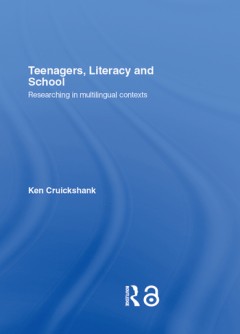
Teenagers, literacy and school : researching in multilingual contexts
This unique and timely book follows the experiences of four Arabic teenagers, their families and their community, focusing on the role of literacy in their daily lives and the differences between home and school. The author looks at the conflict between expectations and practices at school and in the home, arguing that problems are inevitable where class and cultural differences exist. Emerging…
- Edition
- -
- ISBN/ISSN
- 9780203015438
- Collation
- xvi, 246p. : ill.
- Series Title
- -
- Call Number
- 428.00712 CRU t
 Computer Science, Information & General Works
Computer Science, Information & General Works  Philosophy & Psychology
Philosophy & Psychology  Religion
Religion  Social Sciences
Social Sciences  Language
Language  Pure Science
Pure Science  Applied Sciences
Applied Sciences  Art & Recreation
Art & Recreation  Literature
Literature  History & Geography
History & Geography